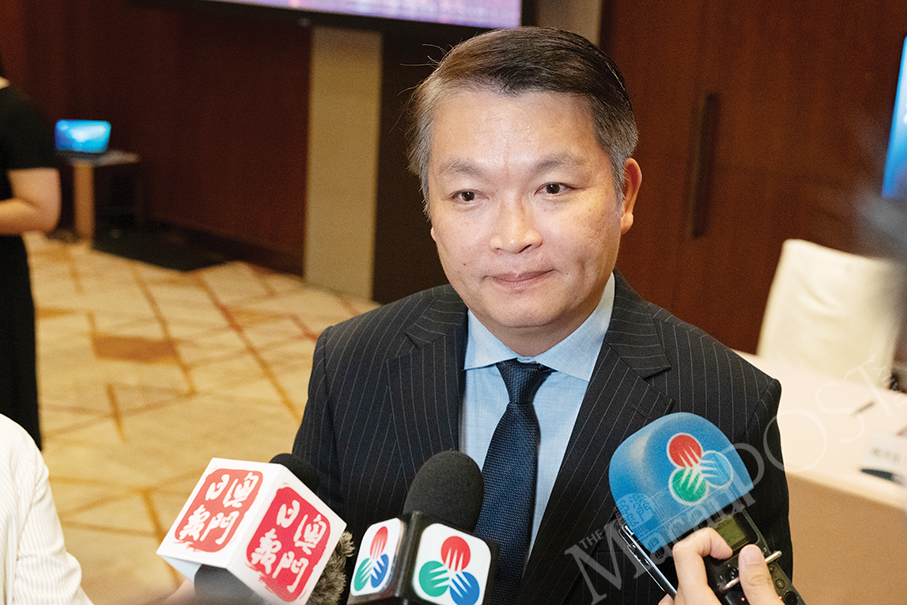Davis Fong Ka Chio, who heads the Institute for the Study of Commercial Gaming at the University of Macau (UM), says that possible amendments to the law regulating the local gaming industry should not stipulate the maximum number of gaming concessions to be granted – as the city’s three gaming concessions and three sub-concessions expire between 2020 and 2022.
Fong made the remarks in a phone interview with The Macau Post Daily last week.
Secretary for Economy and Finance Lionel Leong Vai Tac said earlier this month that the government had not yet decided whether it would keep the current system of gaming sub-concessions.
The city’s six gaming operators are SJM, Wynn, Galaxy, Venetian, MGM and Melco. While SJM, Wynn and Galaxy are concessionaires, the Venetian, MGM and Melco are sub-concessionaires.
According to Law 16/2001 regulating the gaming sector, which came into force in 2001, a maximum of three gaming concessions were to be granted.
According to the website of the Gaming Inspection and Coordination Bureau (DICJ), the government announced the results of the gaming concession bidding process and granted concessions to SJM, Wynn and Galaxy in early 2002.
In late 2002, the government allowed Galaxy to set up a subconcession relationship with Venetian – by amending Galaxy’s concession contract, according to the bureau’s website.
Following the issuance of the first sub-concession, SJM and Wynn signed their own sub-concession deals in 2005 and 2006 respectively, SJM with MGM and Wynn with Melco, according to the bureau’s website.
While the SJM concession and MGM sub-concession expire in 2020, the other two concessions and two sub-concessions are ending in 2022.
The bureau has said that it is reviewing whether it would need to propose amendments to the law regulating the gaming sector, as part of its preparatory work for the upcoming gaming concession bidding process.
The bureau is overseen by the Secretariat for Economy and Finance.
Any proposed changes to the gaming industry law would have to be submitted by the government to the Legislative Assembly (AL) for debate and vote.
Fong said it would be more suitable that the amended gaming industry law does not, unlike its current version, stipulate the maximum number of gaming concessions to be granted.
Fong said the government should consider amending the gaming industry law by stipulating that the government’s Gaming Industry
Committee would decide the number of gaming concessions to be granted for the upcoming bidding process.
The Gaming Industry Committee, established in 2000, consists of the chief executive, secretary for economy and finance, secretary for administration and justice, secretary for security, secretary for transport and public works, the director of the Gaming Inspection and Coordination Bureau, as well as two officials from the Office of the Chief Executive. The committee is chaired by the chief executive.
Fong said the method – the Gaming Industry Committee deciding the number of gaming concessions to be granted – would allow the government to grant as many gaming concessions as it wants for the upcoming bidding process, based on civil society’s opinions and the real situation at that time.
Fong also said the government should take into consideration whether a particular gaming operator can contribute to Macau’s aim of developing into a world tourism and leisure centre when it grants new gaming concessions.
Institute for the Study of Commercial Gaming at the University of Macau (UM) Director Davis Fong Ka Chio poses during an interview with The Macau Post Daily in his office late last year. Photo: Tony Wong






